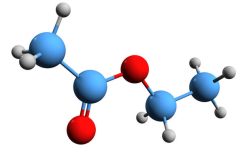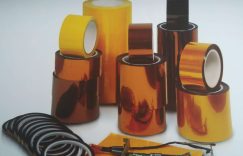Advantages of Thermoplastic Polyimides (TPIs):

-
High-Temperature Resistance: TPIs possess exceptional thermal stability, making them suitable for applications exposed to extreme temperatures. They can operate continuously at temperatures ranging from 260°C (500°F) to 315°C (600°F) without significant degradation. This characteristic makes them ideal for aerospace, automotive, and electrical components.

-
Mechanical Strength: TPIs exhibit remarkable mechanical strength, including high tensile strength, flexural strength, and impact resistance. Their molecular structure, characterized by rigid aromatic rings and flexible ether linkages, contributes to their robust mechanical performance. This strength allows them to withstand demanding mechanical stresses and loads in harsh environments.

-
Electrical Insulation: TPIs are excellent electrical insulators, offering high dielectric strength and low dielectric losses. They exhibit stable electrical properties over a wide temperature range, making them suitable for use in electrical connectors, insulators, and printed circuit boards (PCBs). Their insulating properties prevent electrical leakage and ensure reliable performance in electronic applications.
-
Chemical Resistance: TPIs demonstrate impressive resistance to a wide range of chemicals, including acids, bases, solvents, and fuels. This chemical inertness enables them to withstand exposure to harsh environments and aggressive fluids. Their robust chemical stability makes them suitable for applications in chemical processing equipment, laboratory components, and fluid handling systems.
-
Low Moisture Absorption: TPIs exhibit low moisture absorption, ensuring dimensional stability and preventing mechanical property degradation due to moisture ingress. This characteristic is particularly important in applications where dimensional accuracy and reliability are crucial. Their low moisture absorption contributes to their long-term performance and durability in demanding environments.
Disadvantages of Thermoplastic Polyimides (TPIs):
-
High Cost: TPIs are generally more expensive than other engineering plastics due to the complexity of their synthesis and purification processes. This higher cost can be a limiting factor for certain applications where budget constraints are a concern.
-
Limited Processing: TPIs can be challenging to process due to their high melting temperatures and relatively low melt flow rates. Specialized processing techniques, such as high-temperature extrusion or injection molding, are often required to shape TPI parts. This limited processability can increase manufacturing costs and complexity.
-
Poor Weldability: TPIs are typically difficult to weld or bond due to their high thermal stability and low surface energy. Special welding techniques, such as laser welding or ultrasonic welding, may be necessary to achieve successful bonding. This can limit their use in applications where welding or bonding is required.
-
Susceptibility to Wear and Abrasion: TPIs can exhibit wear and abrasion under certain conditions, particularly when subjected to sliding or abrasive contacts. This can be a concern in applications involving moving parts or exposure to abrasive environments.
-
Limited Color Options: TPIs are typically available in a limited range of colors due to their inherent chemical structure. This can be a drawback for applications where aesthetic considerations are important or where color-coding is used for identification purposes.



